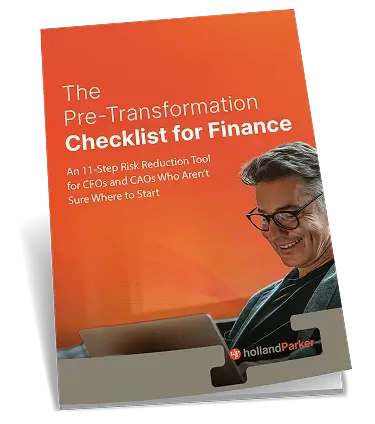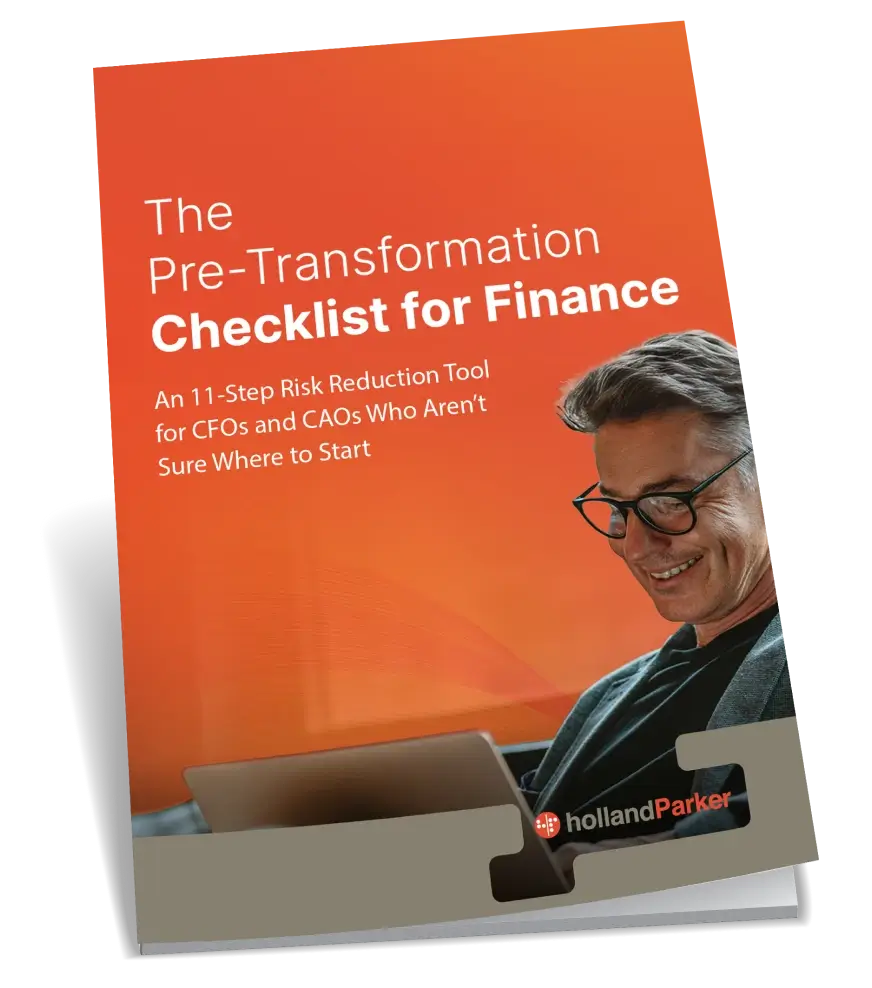CFOs and finance teams must lead organizational decision-making processes with insight, speed, and confidence. Yet, many financial leaders are bogged down by inefficiencies in routine processes such as the period-end financial close and reporting cycle, making it difficult to deliver timely and accurate results to key stakeholders.
Meanwhile, there are growing expectations from operational leaders and management to receive more timely financial and operating results to allow them to make decisions that support profitability and growth. These expectations cannot be satisfied unless efficiencies are achieved positioning your team to deliver accurate reports in a timely manner.
Contrast this predicament with the ideal circumstances. Think for a moment. What would a more efficient and quicker financial close process at period-end mean for your organization?
- Management would have access to financial data in a timely manner.
- Management can make real-time decisions with confidence.
- Operations can support growth and profitability with access to key data points that pertain to their function in the organization.
This can be achieved. The question is, how can CFOs spearhead efforts to improve the period-end close process and lead at speed throughout the organization? Let’s examine the opportunity to transform finance.
Solve These Challenges Associated With the Period-End Close
There are many factors that inhibit the period-end close in a typical organization:
- The inherently complex nature of tax regulations and accounting standards.
- Difficulty gathering required information from departments, which causes delays.
- Reliance on Excel spreadsheets or several incompatible software platforms.
- Lack of resources and under-staffed teams leaving little room to seek improvements.
- Workload does not allow for time to design or implement a new, more efficient system.
To complicate matters, there may be resistance to change from within the finance department or elsewhere in the organization, despite the availability of better software platforms or opportunities to pursue process improvements. This can be due to comfort with the existing way of doing things and a reluctance to put in the effort to change to a new way of working.
An additional challenge is that when you attempt to increase speed around the financial close process, you must still be able to maintain accuracy. This is very difficult when strapped for people, resources, or software tools. Employees may feel additional stress if there is a push for speed without the necessary support to enhance productivity. In other words, urging employees to work faster or produce results quickly without changing the underlying processes or software can result in errors, mistakes, and inaccuracies.
To aid in the transition to a faster and more efficient period-end close process, the focus should be on supporting best practices and implementing the leading CPM solution on the market — the OneStream intelligent finance platform.
OneStream provides a unified, intelligent finance platform built to conquer complexity so that CFO and finance teams can lead at speed and enable confident decision-making. Taking this step will unify finance and ensure a smooth transition to a better financial close process.
Methods to Strategically Accelerate Period-End Financial Close
Consider the opportunity to improve processes through the implementation of best practices and unleashing the power of finance when migrating to OneStream.
1. Document Procedures
Finance teams can quickly get lost in a sea of financial data, spending hours trying to determine what someone else did and where data came from. Consider implementing clear, coherent standard procedures for all individuals to follow.
To ensure a clear understanding of these procedures, they should be well-documented and accessible to each team member. Adding a series of checklists to standard procedures can help to improve efficiency, as well as accuracy.
2. Seek Constant improvement
Instituting standard operation guidelines and procedures is important, and can lead to efficiencies. But it is not enough. These processes must be constantly reviewed and analyzed to discover additional methods for improving accuracy and efficiency.
This review should be done holistically by looking at how each procedure affects the entire output. Although this requires a considerable amount of effort bringing everyone together to discuss opportunities for improvements, there is tremendous benefit in the long run by improving key procedures that impact the financial close process.
3. Implement Cross-Training
Relying on a limited number of employees to follow best practices increases the chance of delays in the event of a disruption. Perhaps a key employee is pulled into another project during an inopportune time in your period-end close process. To avoid this scenario, employees should be cross-trained to ensure that the team can continue to function at a high level. Then, you can easily shift workloads depending on need or availability.
4. Spread Work Across the Calendar
You should be able to identify several processes that can spread throughout the month so that they don’t pile up during the critical period-end close process. Talk to your team about how to stagger certain financial processes. By identifying which necessary tasks can be completed earlier in the period and by spreading out the work, the closing process can be completed more quickly and efficiently. Once this method of work becomes the norm, it will allow for a smoother operation each successive period.
5. Automate Processes Through OneStream
Wherever possible, processes should be automated. For instance, spreadsheets requiring manual data entry can be replaced by the automation capabilities in OneStream. Through the OneStream platform, you can automate key processes such as data loading, reconciliation, and reporting.
Then, you can close faster with pre-and post-load validations, quickly identify any errors that need to be addressed, and perform a quick resolution of data quality issues. This way, your team spends much less time validating data and much more time delivering financial insights to decision-makers throughout the organization.
Ready to Migrate to OneStream Software?
Change can be difficult, but it’s necessary to lead a faster period-end close process in today’s organizations. Initially, there will be increased effort adapting to a new platform, but the benefits of greater efficiency, better data access, and enhanced reporting far outweigh the upfront challenges.
As a OneStream Diamond Implementation Partner, we simplify the change. We are committed to 100% customer success during the migration process. Our expert team applies industry best practices to your processes to get the most of your investment in OneStream. We also follow a proven implementation approach to deliver on-time and on-budget. This is what separates us as a OneStream partner.
Get ready to lead with speed and confidence! Contact HollandParker today to discover strategic support migrating to OneStream within your organization.








